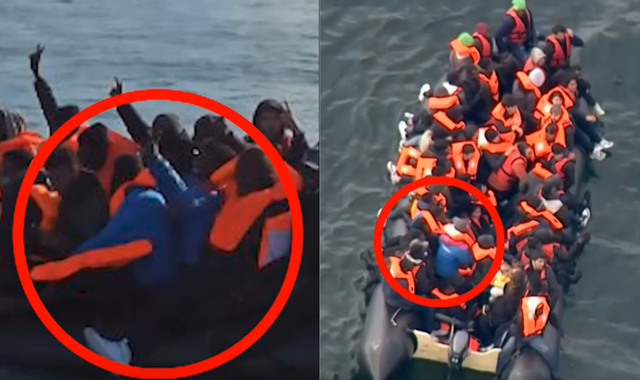On Air Now
The Smooth Sanctuary with Gary Vincent 7pm - 10pm
23 April 2024, 18:11 | Updated: 23 April 2024, 20:54

Plenty of people have died on small boats trying to cross the Channel. But this was different.
The people who perished in the waters off Wimereux died not just because of the greed of people smugglers, or the inadequacy of their boat. This is a story about violence.
What really killed these people was a hijacking, and by the increasingly dangerous and volatile atmosphere that lingers over the lives of migrants in northern France who are trying to get to Britain.
Often we have heard stories of feuds and of weapons being used between rival groups in camps. Now, it seems that a sense of violent rivalry has spread to the beaches.
We have been told extraordinary details of what happened in the moments before three men, a woman and a young girl died in the cold, dark waters within sight of the promenade.
There were, so we're told, around 50 people who had paid for a place on board the boat and, as is normal with these crossings, helped to carry it down the beach in Wimereux before getting to the waterfront.
At this point, another group of people emerged from the shadows and pushed their way on to the boat, threatening those on board with sticks and taking over, a man in a balaclava manhandling the controls of the engine.
Nobody was thrown off but, as the vessel left the shore, it now had 112 people on board.
To put that into context, I would imagine these boats could probably safely accommodate a maximum of 20 people.
Normally, packed by smugglers, they leave northern France with around 50 or even 60 on board. Never have I heard of a boat having more than 100 people on board.
So with the boat presumably now desperately low in the water, horribly overloaded, unbalanced and, almost certainly, in the hands of someone with no experience of piloting a passenger vessel, it set off.
But the waters around here are treacherous, dotted with sandbars that the locals know, and the amateurs can't see.
The wallowing dinghy hit one of them and shuddered to a halt, only a few hundred metres from the shore.
Some of the passengers stood up, either in shock or else to remonstrate. A couple fell into the water.
When the French authorities arrived, they took two people from the water and reported finding "several people" who were unconscious and in "grave difficulty".
What's clear is that the two people who went into the water drowned - believed to be the woman and the young girl.
What we don't know is how the other three victims - three men who appear not to have left the boat - ended up dying.
The local authorities, when asked for more details, say they are investigating.
Read more:
Record number of small boat arrivals continue
'The UK cannot send me to Africa'
Host of questions to be answered
This begs important questions - are we seeing a new form of crime within the realm of people-smuggling?
Was this attack, where one group hijacks another group's dinghy, a one-off, or the precursor to a new, and dangerous, form of conflict?
What will be the reprisals that follow? And - if they didn't drown - how exactly did those people die within around 20 minutes of leaving shore?
None of this has escaped the notice of the UK's National Crime Agency (NCA), which is monitoring developments.
The NCA is surely aware that the very people who charged on to the boat are now in Britain, having refused to leave the vessel when the authorities were recovering the dead and injured, along with dozens of the original passengers, who now wanted to get off.
"These tragic events demonstrate just how dangerous these crossings are and the callous nature of those who organise them," said a statement from the NCA.
"Our thoughts are with those affected. The NCA will be working with Kent Police and Border Force to support the French investigation into these deaths."
(c) Sky News 2024: Migrant deaths: Are we seeing new form of crime after rival group pushed their way on to boat?